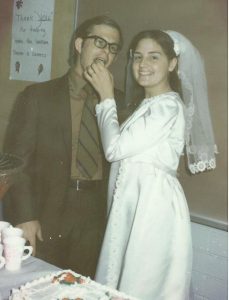 One morning a woman arose early and sat by her large front window and watched an incredible sunrise as it lit the valley in gold. She observed the shadow of the night moving out of the way of the suns rays as it rose slowly over the mountains. She could feel that it was going to be a beautiful day and it filled her heart with gladness.
One morning a woman arose early and sat by her large front window and watched an incredible sunrise as it lit the valley in gold. She observed the shadow of the night moving out of the way of the suns rays as it rose slowly over the mountains. She could feel that it was going to be a beautiful day and it filled her heart with gladness.
But as she looked across the valley she noticed that there was a thick blanket of fog covering most of the city. She realized that despite the promise of a beautiful day none of those living in the valley could see it. They had no idea that the sun was beautiful and the air was clear and the sky was blue. All they could see was the grey fog that surrounded them.
What a great metaphor for the lives of many parents.
When I began parenting it wasn’t exactly as I had envisioned. It was harder. I knew there must be a way to enjoy my children more, to feel less resentment. I knew that there must be a way to remain calm. But I was lost in the fog of ignorance.
I’m using this word in the classic sense – lack of knowledge, information or awareness.
At first, for me, it was absolute lack of awareness in the area of remaining calm with my children.
I grew up in a good family and we loved each other but the way we dealt with conflict was not healthy. We yelled. I watched my mom and dad yell and my aunts and uncles. It was what you did if you were angry, if kids weren’t complying in the way you thought they should, if money was tight, if a spouse made a mistake or if circumstances didn’t match what you expected.
It took me a full ten years to even come to an awareness that yelling might not be the best way to handle things. At some point, I began to suspect that there might be a different way as I observed other families. But it came to a head for me when my neighbor walked across the street and handed me a brochure on anger management!
things. At some point, I began to suspect that there might be a different way as I observed other families. But it came to a head for me when my neighbor walked across the street and handed me a brochure on anger management!
After I became fully aware that I needed to change this particular behavior I remained ignorant for a time because I lacked knowledge and information on how it was even possible to manage your emotions. I believed at that time that responding to emotion as I did was normal. I believed that my yelling was caused by my kids, my spouse, money, other people and circumstances I couldn’t control. It had never occurred to me that how I responded was not determined by what was happening or who was involved but was totally within my control.
Fortunately, I heard this statement in a church class, “If there’s a problem, it’s your problem.” Let me tell you that made me so MAD and I didn’t believe it was true!! Over the next few years, I was fortunate enough to find other pieces of information that helped me begin to see that I could take responsibility for my emotions, maintain calm, and manage my response. The fog began to lift.
As I learned new things I applied them and my life began to change. The sun came out and I could see that it was going to be a beautiful day.
Many wonderful parents live in a fog-filled valley in one way or another.
How can you be sure you’re doing it right? How can you remain calm? How can you connect when life is so busy? How can you manage disappointment, frustration, and negative thoughts? How can you see your children in a better light? How do you let go of resentment? How do you get past so much family contention? How do you keep your home clean and orderly? These are just of a few fog-filled places in parenting and when we don’t know the answers to these and other questions it’s harder to see the sun and know that it’s going to be a beautiful day.
What I see many parents do as I mentor is to attach blame to themselves. They just aren’t good people in some way or they would know how to do it better. But they aren’t bad people; they are ignorant and need information and knowledge about what it takes to resolve their particular struggle. And then they need to implement that knowledge and begin practicing.
Sometimes parents blame their children. If they just weren’t so noisy, uncooperative, messy, naughty…and the list goes on. Sometimes they blame money or each other or their circumstances.
As parents, we need to stop assigning blame for the difficulties we have in our family and seek out information and knowledge that will help us manage better. We can get that information through good books, parenting events, social service organizations, and mentoring with someone who has accomplished what we want to be able to do better.
We have to choose to climb out of the fog-filled valley and into a brighter day. It is always a choice that we have and we can learn to make that choice more often.
Here is something you can begin to do today that will help clear fog out of your family no matter what your current struggle?
Take responsibility and stop blaming. When we choose to tell ourselves stories that blame others, we decide to become victims. Victims parent poorly.
Blame is always an indicator there’s a problem with our way of being or how we perceive what’s happening.
One mom I worked with had this enlightening experience as she began taking responsibility for her own feelings and responses and stopped blaming.
She told me the following:
“I opened the dryer door only to discover wet clothes. Jonathan (my 14-year-old) didn’t press the start button when he transferred loads. I was three words into my grumble when I heard myself say out loud “Oh, I’m so glad I checked the dryer.” The next words were of understanding, with a deep feeling of love . “I’ve done this same thing before .” This whole cycle took under 3 seconds, and it happened without me really thinking about it. Wow, I’m amazed.” April H., WA
When you find yourself blaming something or someone outside of yourself STOP and ask this question – How am I choosing to respond and what would be a better response? As you practice you will get better and better at choosing your response no matter what the circumstances are.
April, who had struggled with negative thinking had begun to climb out of the fog of blame and she was discovering that the sun does shine and that it can be a beautiful day and you can discover the same thing for yourself.
What is your experience with learning and implementing something new and then coming out of the fog? Please share because we are all looking for a new bit of information that can help us do the same. : )
GROUP MENTORING
I will be hosting a four-week GROUP mentoring session and you’re all invited. If you really want to take your parenting and family happiness up a notch then this is something to consider.
Calls will be held bi-weekly on Thursdays. They will be recorded for later playback. Each call will consist of training on a personal growth as a parent topic and then will have a Q&A. Calls will last from 1hour to 1 ½ hours depending on the Q&A.
Join the Group
I can help you experience less resentment; enjoy being with your children more, have more connected relationships, less stress, less overwhelm, and greater inner peace. I can help you become more of the person and parent you really want to be.
“I so much from you…I wish you knew…the difference you are making. It really feels like deep, sustainable changes. I am enjoying more happiness…I’ve done plenty of mentoring/classes/energy work/ self-help, etc., and my husband told me a few months ago that this was the best I’d ever spent.” Stefanie Miller
Join me and experience a relationship transformation
You can learn more about climbing out of the fog in my new book Becoming a Present Parent, Connecting With Your Children in Five Minutes or Less. Knowing the difference will help you let it be enough. You can also receive a chapter from the book on Touchpoints, creating points of connection rather than having points of contention, FREE by visiting becomingapresentparent.com It can be life-changing for your family. I promise!



 who reminded him of the principle we’ve been discussing—simple things, done over time consistently, bring significant results. His servant said, “If the prophet had bid thee do some great thing, wouldest thou not have done it? How much rather then, when he saith to thee, Wash, and be clean?” (2 Kings 5:13).
who reminded him of the principle we’ve been discussing—simple things, done over time consistently, bring significant results. His servant said, “If the prophet had bid thee do some great thing, wouldest thou not have done it? How much rather then, when he saith to thee, Wash, and be clean?” (2 Kings 5:13).
 When I was a senior in high school I took a final sewing class. I picked out some darling pink and brown striped material for an outfit and went to work knowing that it was going to be fabulous. When I put it on the crotch was at my knees, the zipper zipped up the inside and the facing was on the outside. I had done my very best and my best stunk!
When I was a senior in high school I took a final sewing class. I picked out some darling pink and brown striped material for an outfit and went to work knowing that it was going to be fabulous. When I put it on the crotch was at my knees, the zipper zipped up the inside and the facing was on the outside. I had done my very best and my best stunk! absolutely every effort to learn to sew. I had asked for help from the experts in my life. I had put in the time. I had practiced repeatedly. I asked God to help me remember everything I had learned. I asked that I would understand the directions fully and that I wouldn’t make any more mistakes. And guess what, I didn’t. I sewed that dress without having to pick out another seam. I knew what to do and I did it well. The dress was simple but beautiful. In fact, my cousin was married in that almost 50-year-old dress this fall.
absolutely every effort to learn to sew. I had asked for help from the experts in my life. I had put in the time. I had practiced repeatedly. I asked God to help me remember everything I had learned. I asked that I would understand the directions fully and that I wouldn’t make any more mistakes. And guess what, I didn’t. I sewed that dress without having to pick out another seam. I knew what to do and I did it well. The dress was simple but beautiful. In fact, my cousin was married in that almost 50-year-old dress this fall.